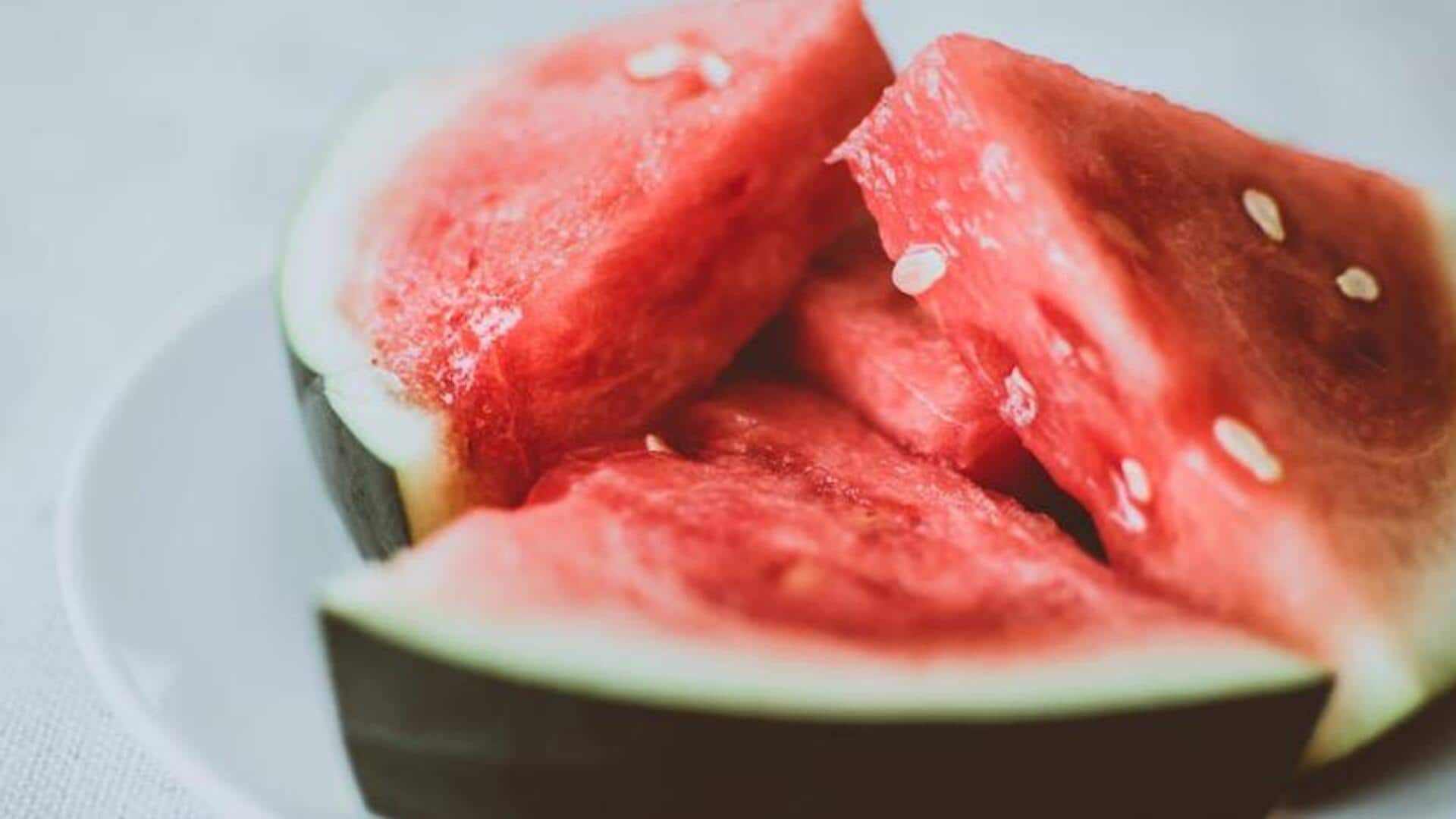
Watermelon v/s cantaloupe: Which is healthier?
What's the story
Watermelon and cantaloupe are two of the most favorite fruits, especially in summers. Both provide a burst of refreshing flavor and hydration, but they also have unique nutritional profiles. Knowing these differences can help you choose between the two based on your nutritional requirements. Here, we look at the nutritional values of watermelon vs cantaloupe, focusing on calories, vitamins, minerals, and fiber.
Calorie count
Calorie content in each fruit
Watermelon is widely known for being low in calories. It only has about 46 calories in a one-cup serving. Cantaloupe, on the other hand, has a few more calories, approximately 60 per cup. This makes watermelon the ideal choice for anyone looking to keep their calorie levels in check while still indulging in something sweet.
Vitamin content
Vitamin richness in watermelon and cantaloupe
Both fruits are packed with vitamins but differ in the type. Watermelon is an excellent source of vitamin C and offers about 21% of the daily recommended intake per cup. It also offers vitamin A at about 18%. Cantaloupe, on the other hand, provides higher amounts of vitamin A (about 120% of the daily value) per cup, along with a good amount of vitamin C.
Mineral content
Mineral composition differences
Cantaloupe is prominent for potassium, which it offers at about 473 milligrams per cup to promote heart health and muscle function. Watermelon has a lower content, roughly 170 milligrams per cup, but makes up for it with other minerals, such as magnesium, at around 15 milligrams.
Fiber levels
Fiber content analysis
Fiber is crucial for digestive health, and both fruits serve this requirement in their own way. Cantaloupe has more fiber than watermelon, with approximately 1.6 grams per cup compared to watermelon which has 0.6 grams per cup. This makes cantaloupe a better option for those looking to up their fiber intake through fruits.